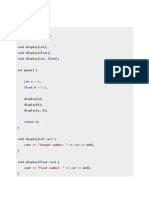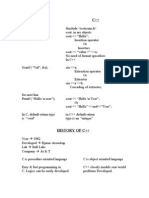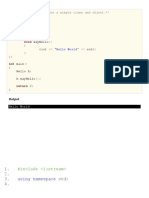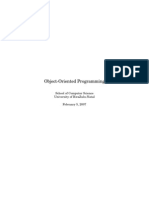0% found this document useful (0 votes)
9 views20 pagesXII-C - Programs (Part2)
The document provides an overview of object-oriented programming concepts in C++, including classes, objects, constructors, destructors, friend functions, operator overloading, inheritance, virtual functions, data abstraction, and file handling. It includes code examples demonstrating these concepts, such as calculating area and volume, using friend functions, and implementing inheritance. Additionally, it outlines important theoretical concepts and practical programming exercises.
Uploaded by
ahmadaalima748Copyright
© © All Rights Reserved
We take content rights seriously. If you suspect this is your content, claim it here.
Available Formats
Download as PDF, TXT or read online on Scribd
0% found this document useful (0 votes)
9 views20 pagesXII-C - Programs (Part2)
The document provides an overview of object-oriented programming concepts in C++, including classes, objects, constructors, destructors, friend functions, operator overloading, inheritance, virtual functions, data abstraction, and file handling. It includes code examples demonstrating these concepts, such as calculating area and volume, using friend functions, and implementing inheritance. Additionally, it outlines important theoretical concepts and practical programming exercises.
Uploaded by
ahmadaalima748Copyright
© © All Rights Reserved
We take content rights seriously. If you suspect this is your content, claim it here.
Available Formats
Download as PDF, TXT or read online on Scribd
/ 20























































































